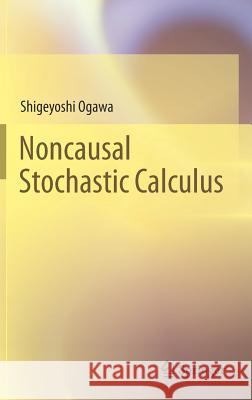Noncausal Stochastic Calculus » książka
topmenu
Noncausal Stochastic Calculus
ISBN-13: 9784431565741 / Angielski / Twarda / 2017 / 210 str.
Kategorie:
Kategorie BISAC:
Wydawca:
Springer
Język:
Angielski
ISBN-13:
9784431565741
Rok wydania:
2017
Wydanie:
2017
Ilość stron:
210
Waga:
0.49 kg
Wymiary:
23.39 x 15.6 x 1.42
Oprawa:
Twarda
Wolumenów:
01
Dodatkowe informacje:
Wydanie ilustrowane











